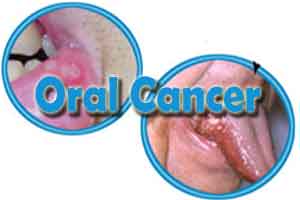- Home
- Editorial
- News
- Practice Guidelines
- Anesthesiology Guidelines
- Cancer Guidelines
- Cardiac Sciences Guidelines
- Critical Care Guidelines
- Dentistry Guidelines
- Dermatology Guidelines
- Diabetes and Endo Guidelines
- Diagnostics Guidelines
- ENT Guidelines
- Featured Practice Guidelines
- Gastroenterology Guidelines
- Geriatrics Guidelines
- Medicine Guidelines
- Nephrology Guidelines
- Neurosciences Guidelines
- Obs and Gynae Guidelines
- Ophthalmology Guidelines
- Orthopaedics Guidelines
- Paediatrics Guidelines
- Psychiatry Guidelines
- Pulmonology Guidelines
- Radiology Guidelines
- Surgery Guidelines
- Urology Guidelines
Prevention of Oral Cancer : Updates

Oral cancer are referred to the cancers that occur in the mouth, lips, tongue, cheeks, palate or throat and it is the leading cause of cancer-related deaths among men. Oral cancer is also a highly preventable and treatable disease if detected early. Incidentally, over 80% of all oral cancers can be attributed to tobacco usage.
For Prevention of cancer following 5 measures are recommended:
- Quit tobacco in all its forms
More than 50 percent of oral cancers in India are attributable to smokeless tobacco products. Referred usually as gutka or khaini in India, smokeless tobacco increases the risk of oral precancerous lesions and oral cancer between 2-fold and 15-fold. Unfortunately, gutka products are being packaged and marketed as safer products today, with youngsters increasingly falling for them. Let not the packaging befool you, tobacco in any form is a ready form of cancerous poison.
- Quit or minimize use of alcohol
Excessive alcohol consumption is another risk factor for oral cancer. It is advisable to limit your alcohol intake to a minimal level. Not only will this prove to be good for your liver and heart, but it also reduces your risk of oral cancer. Do not drink more than one drink per day if you're a woman or two drinks per day if you're a man.
- Use skin protection
Excessive exposure to the sun is also linked to increased risk of cancer in the lip area. To reduce this risk, you must try to limit your exposure to sunlight and other sources of ultraviolet (UV) radiation. This does not mean you must avoid the sun altogether. However, it is advisable to stay out of the sun particularly between10 am and 4 pm when sunlight is strongest. Also, use sun protection cream as well as lip balm with a minimum of SPF 30.
- Undergo preventive examinations
Early detection and regular preventive examination are key to surviving oral cancer. It is important to thoroughly examine your mouth regularly to be able to spot any abnormal growth or lesion. Also, make sure to undergo regular oral cancer screening by your dentist. Regular examinations by a dentist can help detect oral cavity cancer and some oropharyngeal cancers at an early stage. It is also important to maintain good oral hygiene as people with poor oral hygiene are at a higher risk of oral cavity cancer.
- Eat a balanced diet, rich in fruits and vegetables
A diet rich in vitamins and minerals is a potent weapon against cancer as it contains antioxidants that keep the body healthy. A diet low in fruits and vegetables and a vitamin A deficiency is considered to increase the risk of oral and oropharyngeal cancers. It is therefore advisable to consume generous servings of fruits and vegetables daily.

Disclaimer: This site is primarily intended for healthcare professionals. Any content/information on this website does not replace the advice of medical and/or health professionals and should not be construed as medical/diagnostic advice/endorsement or prescription. Use of this site is subject to our terms of use, privacy policy, advertisement policy. © 2020 Minerva Medical Treatment Pvt Ltd